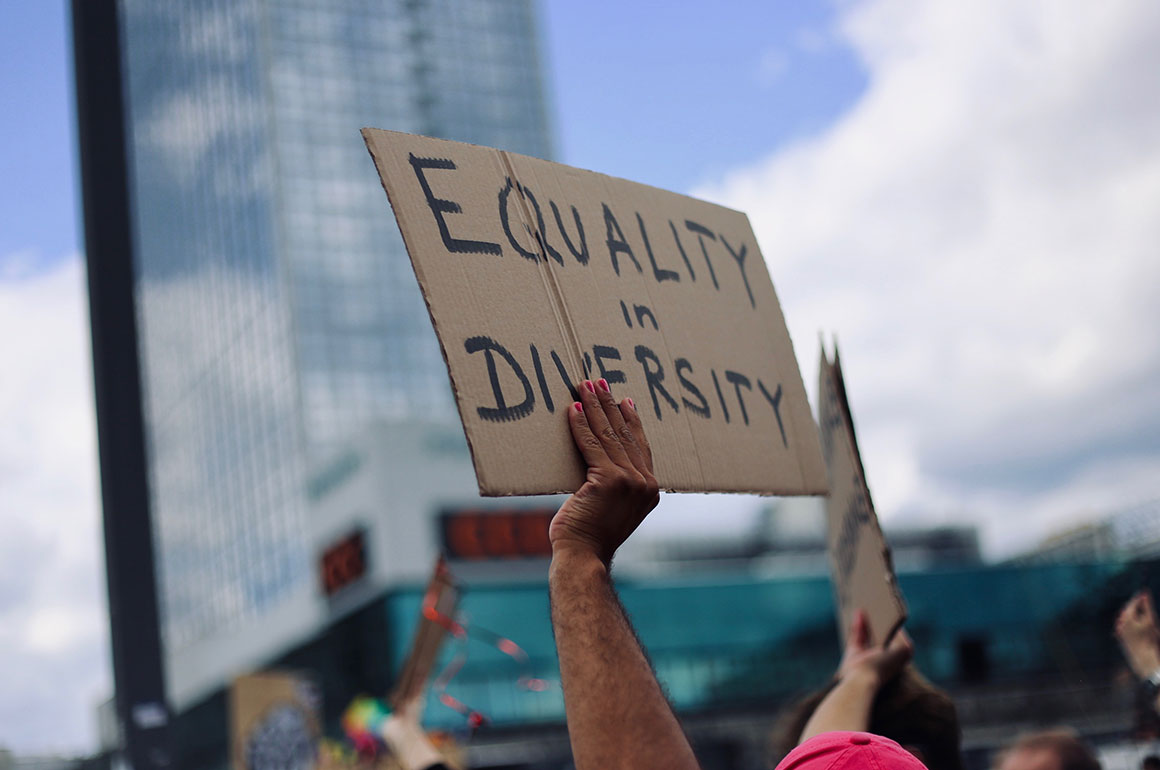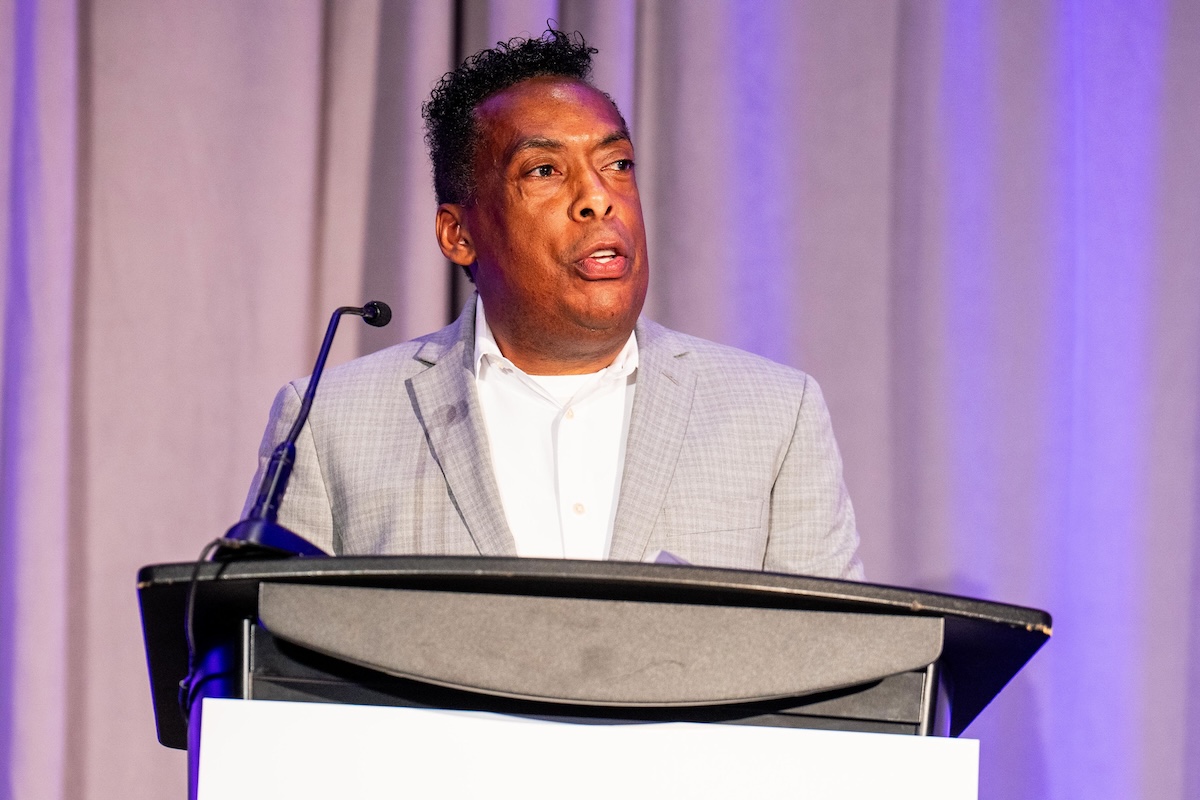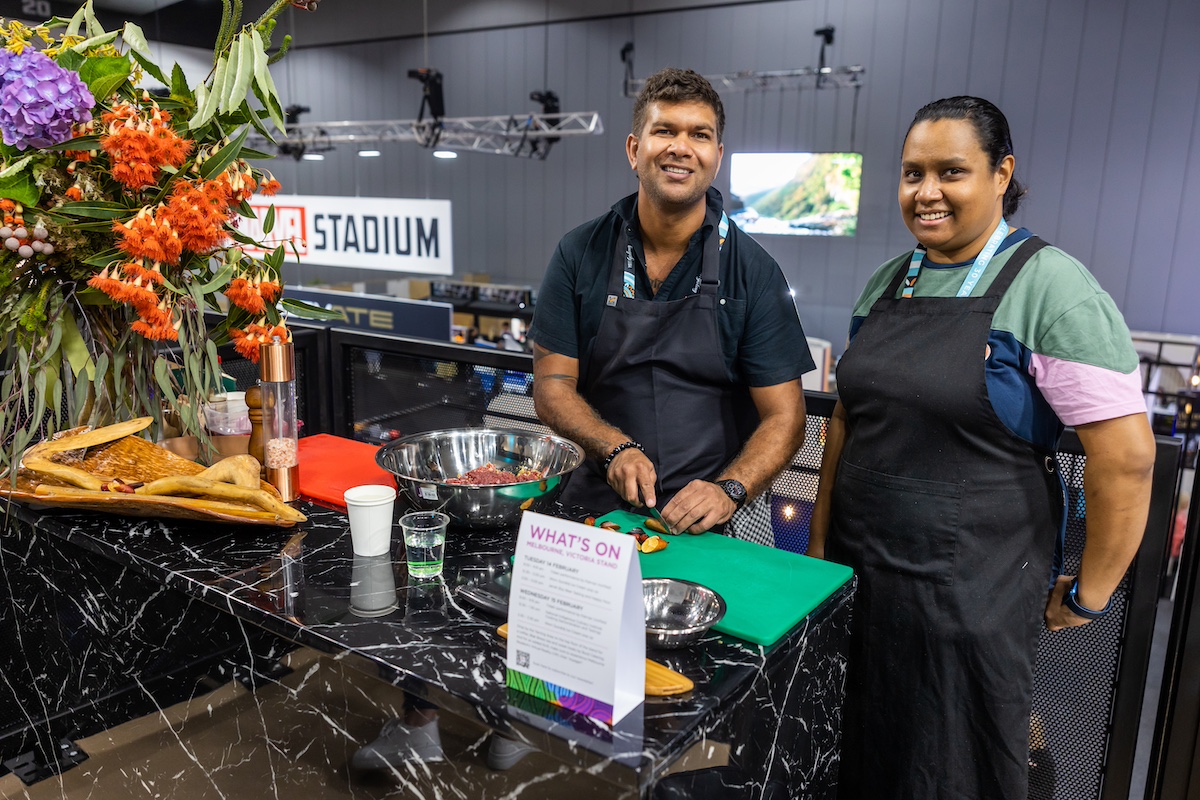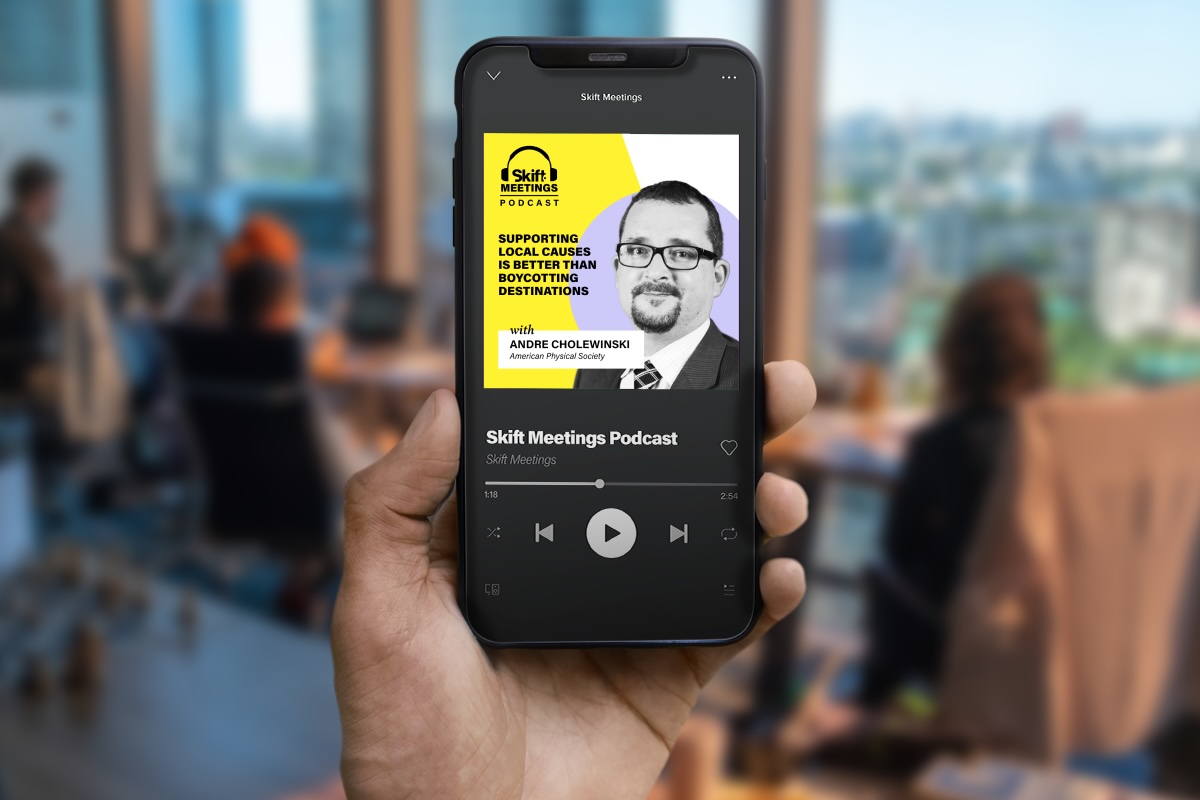Skift Take
Do corporations and exhibitors have a duty to uphold their diversity and equity policies in the public sphere, even if it means boycotting some events? With SXSW taking place this week in the controversial state of Texas, the debate rages.
It was not long ago that politics were considered a taboo topic to discuss in the workplace, but expectations have shifted dramatically over the last decade. When it comes to issues of discrimination, in particular, those in upper management are increasingly expected to take a stand — both within the immediate work environment and in the larger public sphere. And business events are no exception in this new era of political consciousness.
As the recent banning of Russian state delegates at several high-profile events has demonstrated, business events can be a channel for expressing political alliances and leveraging economic clout. But are corporate exhibitors and event organizers willing to take such strong positions on more controversial issues of discrimination within their own national borders?
With SXSW drawing businesses from across the country — and the globe — to the state of Texas, we are seeing this question play out in real time.
Outside of SXSW, the corporate world is pressuring the Texas government to reverse Governor Greg Abbot’s recent directive, which demands that gender-affirming treatments for trans children be investigated as child abuse. “Discrimination is bad for business,” reads a full-page ad in The Dallas Morning News. Over 60 big-name corporations are backing the ad campaign.
How, then, are SXSW exhibitors responding to this controversy? Clubhouse made the bold decision to pull out of the event entirely, while others are using the SXSW as a platform to voice their opposition — most, however, have remained silent.
Exhibitors and Corporations That Took a Stand
Opinions are bound to differ when it comes to the matter of corporate activism. Many SXSW exhibitors chose to remain silent about the political controversy surrounding Texas. Even among those that felt the need to make a statement, a diverse range of approaches emerged.
Clubhouse framed its decision to pull out of SXSW firstly as a matter of protecting its own staff from potential discrimination, and secondly as a matter of maintaining its DEI policies on the broader public stage: “this was a decision we came to relatively quickly as a team when we realized we wouldn’t feel comfortable asking LGBTQ+ voices from the Clubhouse community to come to Texas. and if we feel that way, we shouldn’t be there at all as a brand.”
Adam Katz, CEO and founder of Imprint Projects, similarly put the focus on those who might feel excluded: “[A]s Austin welcomes visitors, there are many who don’t feel at home in their own state of Texas.” Acknowledging that many are “distraught, and distracted by the violence in Ukraine,” he went on to condemn Governor Abbot’s policies on medical treatments for trans children. He also drew attention to a Texas bill banning abortion after six weeks of pregnancy — the most restrictive abortion laws of any U.S. state — and SB 1, a Texas bill removing voting options that are known to boost turnout among people of color and those with disabilities.
Rather than “boycotting the regressive state,” however, his company partnered with Soundcloud “to spotlight emerging talent, to share what is great about the scene in Texas” — in this case, “an all-female lineup of local rappers”. Reading between the lines, Katz is arguing in favor of directly supporting the affected groups (in this case women) by giving them a high-profile platform at the event.
Others made a more explicit argument against boycotting destinations. Among those who commented on Clubhouse’s LinkedIn post, many suggested that it would be more effective to try influencing the state’s position from within its borders.
In a separate LinkedIn post, Amanda Mohar, vice president of MSLGroup, pointed out that the SXSW agenda included several sessions dedicated to the topics at the heart of the controversy. “With recent legislation in Texas threatening access to healthcare for women and trans kids, some — like Clubhouse — pulled out of SXSW, but I was reassured to see an agenda that put these topics front and center,” she said. Mohar highlighted that the first day’s keynote was on access to abortion. She added that several sessions throughout the event were dedicated to LGBTQ+ issues. “Boycotting can be a powerful tool (as we know), but it also means a missed opportunity to speak out when the time is right,” she said.
Arguably, however, SXSW is preaching to the choir — most of its visitors come from out of state, and Austin itself has a thriving LGBTQ+ scene that’s even promoted on the official Visit Austin website. Is an event like SXSW able to reach the voters who might be able to influence legislative authorities? Its widest reach is probably through celebrity guest speakers like Lizzo, rather than through corporate statements.
Research: Shining a Spotlight on DEI in the Event Industry
There are no easy answers when it comes to the place for activism among corporations and event industry players.
A recent study by Destinations International, 2022 Equity, Diversity & Inclusion Study on Destination Organizations, put a spotlight on the issue of DEI in one subsection of the event industry: destination marketing organizations, or DMOs.
While this report is the third installment of an annual series dating back to 2019, this year’s edition was the first to include the following prompt: “Our destination organization’s external messaging demonstrates and reflects the diversity of the community we represent.”
Although a majority of respondents either agreed or strongly agreed with the statement, over 18 percent neither agreed nor disagreed, and almost 8 percent disagreed or strongly disagreed. These findings might not have been the most concerning issue brought to light by the report — with lack of progress in hiring diverse staff and underrepresentation of minorities in C-suite positions arguably taking higher priority — but they still suggest that there is significant room for improvement when it comes to external messaging.
The Wider Picture for the Event Industry
Does this mean that other areas in the event industry are similarly falling short of expectations? Some might argue that destination marketing organizations have a greater obligation to factor DEI into their messaging because their role is to serve as the public face of entire communities, but on the other hand, event organizers and exhibitors may be in a better position to influence government policies. Visit Austin has little power to advocate for its LGBTQ+ community beyond creating a webpage for its local scene, but event organizers and exhibitors can vote with their dollars — going back to the “discrimination is bad for business” mott. Like SXSW, they can also use high-profile speakers and other tactics to draw attention to the issues they want to prioritize.
It remains to be seen whether this kind of advocacy will gain a stronger foothold, but there are signs that the tide is starting to turn. Florida, with its recent move to ban elementary school educators from referencing homosexuality, may be the next event destination to watch.





